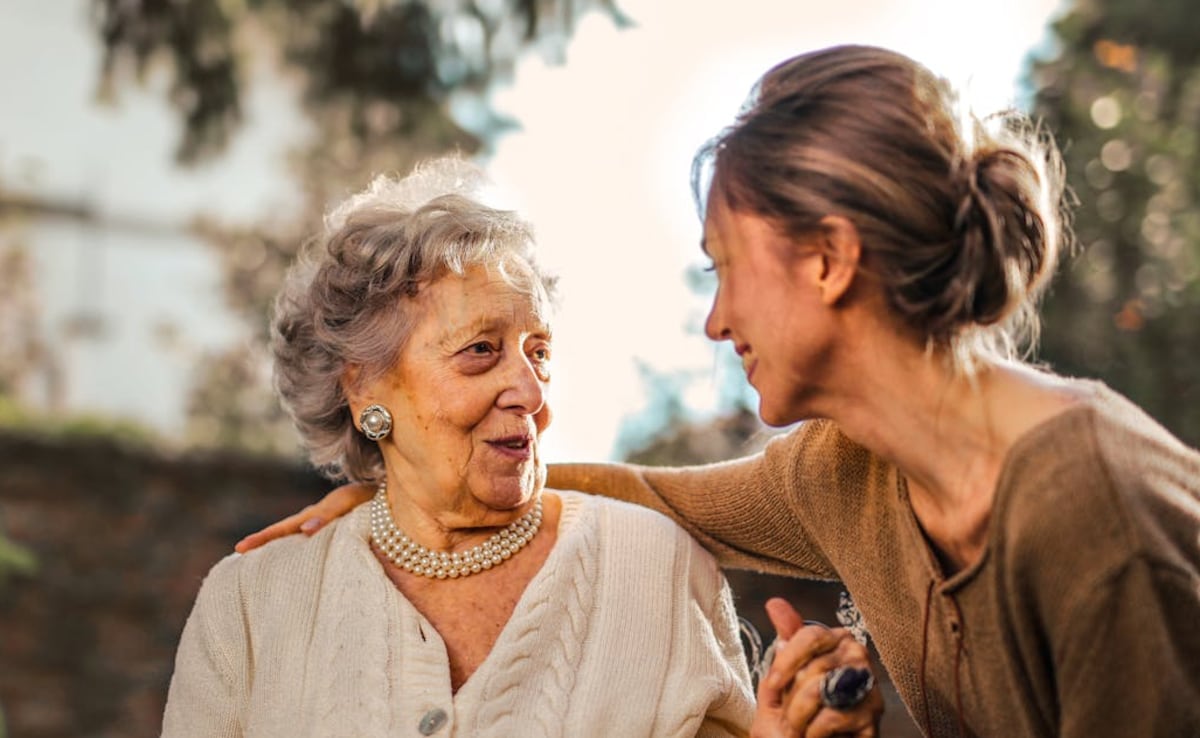
When we talk about ageing in India, the focus often lands on physical conditions or chronic conditions like joint pain, diabetes, hypertension, or heart disease. But behind these visible struggles lies a quieter crisis: the mental health of our elderly. Mental health in later years is often brushed aside as "just ageing" or "being moody," but science shows us that it plays a pivotal role in overall well-being. Globally, the World Health Organization (WHO) estimates that around 15% of adults aged 60 and above suffer from a mental disorder, with depression and anxiety being the most common. In India, the challenge is magnified by factors such as social isolation, limited awareness, stigma, and inadequate geriatric care systems. Add to that the changing family structure where nuclear families dominate urban life and many elderly individuals are left without emotional or social support.
What's often ignored is how mental health directly influences physical health in the elderly. A depressed mind can accelerate chronic illnesses, weaken immunity, and even increase mortality risk. In other words, healing the mind is not just about emotional well-being, it's about extending and improving life itself.
Mental Health Issues In Indian Elderly
The most common mental health conditions in older adults include depression, anxiety, dementia, and late-life psychosis. A 2019 study published in the journal BMC Public Health found that depression affects nearly 34% of India's elderly population, a staggering number considering how under-reported these cases are.
Loneliness, bereavement, financial stress, and lack of independence are major contributors. The transition from active work life to retirement often strips people of their identity and routine, leaving them vulnerable to despair. For many elderly Indians, especially those in rural areas, poor access to healthcare services compounds the problem.
How Mental Health Impacts Physical Health
Mental health issues don't exist in isolation. Depression and chronic stress are strongly linked with physical illnesses such as diabetes, cardiovascular disease, and even cancer progression. Elderly individuals with untreated depression often have higher rates of hospitalisation and longer recovery times.
A report by the National Institute of Mental Health and Neurosciences (NIMHANS) highlights that untreated depression in older adults can worsen cognitive decline, increase fall risks, and accelerate disability. Simply put: the mind and body are inseparable, especially in ageing.
The Role Of Gender In Elderly Mental Health
Gender plays a significant role in shaping senior citizens' mental health in India. Older women are more vulnerable due to a lifetime of unequal access to resources, caregiving burdens, and financial dependence. Widowhood, a common reality given women's longer life expectancy, further adds to emotional distress.
Older men, on the other hand, often struggle with loss of social roles after retirement. Many face identity crises and suppressed emotional struggles, as traditional norms discourage men from expressing vulnerability. Thus, while the challenges differ by gender, both highlight the urgent need for tailored mental health support.

Photo Credit: Pexels
What Indian Research Says
Indian studies consistently show that elderly mental health is underdiagnosed and undertreated. According to the Longitudinal Ageing Study in India (LASI 2020), more than 20% of older adults reported depressive symptoms, but very few sought professional help.
AIIMS and NIMHANS researchers have repeatedly emphasised the lack of trained geriatric mental health professionals in India. Moreover, stigma remains a major barrier. Many families see psychiatric care as a sign of "madness," rather than an essential part of healthy ageing.
Encouragingly, pilot projects in states like Kerala and Tamil Nadu have shown that community-based mental health interventions, like support groups and tele-counselling, significantly improve elderly well-being.
Tips For Families Worried About Their Parents' Mental Health
If you're concerned about your parents' or grandparents' mental health, here are some practical steps:
- Watch for warning signs: Persistent sadness, withdrawal, sleep changes, irritability, or memory issues may signal mental distress.
- Encourage routine check-ups: Request doctors to screen for mental health alongside physical health.
- Promote social connection: Encourage hobbies, community groups, or senior clubs to reduce isolation.
- Involve them in decisions: Giving elders autonomy helps preserve dignity and confidence.
- Address lifestyle factors: Balanced diet, daily walks, yoga, and adequate sleep support both mind and body.
- Seek professional help when needed: Don't hesitate to consult psychiatrists, psychologists, or counsellors; early intervention works best.
As India's elderly population is set to touch 194 million by 2031 (as per the latest census projection), mental health cannot remain on the sidelines. The evidence is clear: healing the mind helps heal the body. Prioritising elderly mental health means not only longer lives, but healthier, more meaningful ones.
Disclaimer: This content including advice provides generic information only. It is in no way a substitute for a qualified medical opinion. Always consult a specialist or your own doctor for more information. NDTV does not claim responsibility for this information.
World Health Organization. (2017). Mental health of older adults.
NIMHANS. (2020). National Mental Health Survey of India 2015-16.
BMC Public Health. (2019). Prevalence of depression among the elderly in India: A systematic review.
International Institute for Population Sciences (IIPS). (2020). Longitudinal Ageing Study in India (LASI), Wave 1, 2017-18, India Report.
Government of India. (2019). Population Projections for India and States 2011-2036. Census of India.
Track Latest News Live on NDTV.com and get news updates from India and around the world

